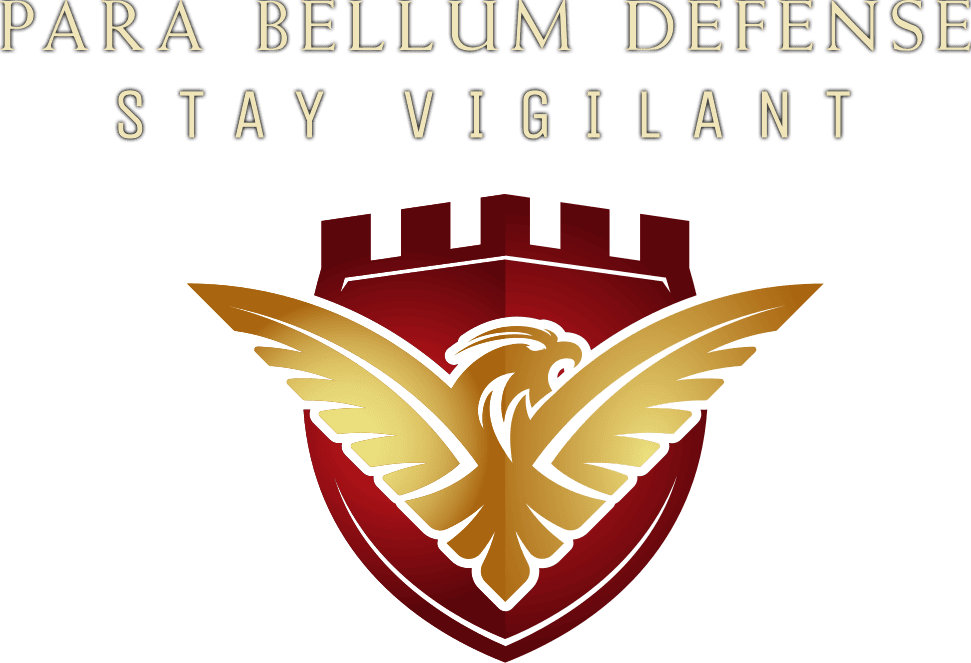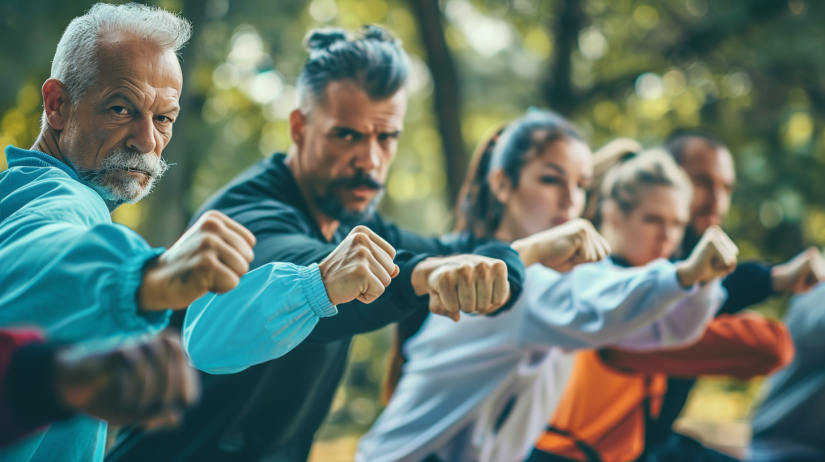
free shipping on orders over $25
We’re having a sale on all our products. Enter your email below to be notified about future sales.


We’re having a sale on all our products. Enter your email below to be notified about future sales.


You need personalized self-defense tools and strategies that match your age and physical capabilities. For teens, consider personal alarms and pepper spray to deter attackers. Adults might opt for martial arts training to improve both physical defense skills and situational awareness. Seniors should look at personal alarms and mobile safety apps, which are easy to handle and effective. If you have physical disabilities, seek adaptable training programs that cater to your specific needs. Each choice plays a critical role in ensuring your safety and confidence. Discover which options could best meet your requirements as you explore further.
Before you can effectively protect yourself, it’s crucial to grasp the fundamental principles of self-defense. Understanding these basics isn’t just about knowing how to throw a punch; it’s about recognizing when it’s appropriate to use force and the potential consequences of your actions.
One key aspect you should consider is the martial arts benefits. Training in martial arts doesn’t just equip you with physical skills; it also enhances your mental awareness and self-discipline. These disciplines teach you how to assess situations and react appropriately, which is vital in self-defense scenarios. You’ll learn not only how to defend yourself but also how to avoid conflicts altogether.
However, it’s equally important to understand the legal implications of self-defense. Every region has specific laws defining what constitutes self-defense and the amount of force you’re permitted to use in various situations. If you’re forced to defend yourself, knowing these laws is crucial to ensure that your actions are legally justified. This knowledge can protect you from potential legal consequences that could arise from misinterpreting what’s acceptable in the eyes of the law.
While understanding the basics of self-defense is foundational, it’s also important for teens to be aware of specific tools they can use to protect themselves. As you navigate through school and social settings, knowing the appropriate self-defense tools not only boosts your confidence but also ensures your safety.
Here’s a concise guide to some effective tools that you might consider:
Engaging in peer workshops can help you practice using these tools effectively, and it’s vital to be aware of school policies regarding what’s permissible on campus. Stay informed and prepared; your safety is paramount.
As an adult, selecting the appropriate self-defense strategy is crucial for ensuring your personal safety in various situations. You’ve got a range of options, from martial arts training to understanding the legal implications of self-defense. It’s about finding what works best for you, keeping both your physical capabilities and comfort level in mind.
Martial arts training is more than just physical defense; it’s about discipline and awareness. You’ll learn not only how to defend yourself but also how to assess situations to avoid unnecessary confrontations. However, it’s also important to understand the legal implications of using physical force in self-defense. Knowing what’s legally justified can help you make smarter decisions in critical moments.
Here’s a quick guide to help you decide:
| Strategy | Pros | Cons |
|---|---|---|
| Martial Arts | Enhances physical fitness; teaches situational awareness | Requires time and dedication |
| Self-defense Tools | Immediate protection; easy to carry | Legal restrictions vary by location |
| Avoidance Tactics | Prevents escalation; minimizes risk | May not always be an option |
| Legal Education | Informed about self-defense rights | Complexity of laws can be daunting |
For seniors, adapting self-defense strategies to fit physical capabilities and safety needs is essential. As you age, your ability to move quickly or handle physical confrontations diminishes, making it crucial to focus on preventive measures and tools that can aid in ensuring your safety.
Here are several effective strategies tailored to senior mobility and emergency response needs:
Adapting self-defense techniques to accommodate physical disabilities can empower you to protect yourself effectively. It’s crucial to find accessible training programs that understand and respect your unique challenges. These programs should offer customizable self-defense strategies that match your physical capabilities and limitations.
Disability awareness plays a significant role in these training sessions. Instructors trained in disability awareness are better equipped to tailor lessons to your needs, ensuring you’re not sidelined in your quest for safety. They’ll focus on techniques that use your strengths, like leveraging upper body strength if you have lower body limitations, or employing tactical use of assistive devices.
When choosing a self-defense class, look for ones that emphasize real-world scenarios relevant to your daily experiences. This approach not only boosts your confidence but also equips you with practical skills that can deter or neutralize a threat.
Yes, self-defense training can boost your mental health by building confidence and reducing stress. You’ll feel more empowered and secure, which contributes to overall emotional well-being and resilience.
When you use self-defense, you’ll face legal boundaries. It’s crucial to prove your actions were defense justification, otherwise, you might end up with legal consequences. Always know your local self-defense laws.
You should practice self-defense techniques regularly to ensure technique mastery. Aim for training frequency of at least twice a week to keep your skills sharp and your responses quick in any situation.
Yes, self-defense insurance policies are available, offering you insurance benefits like legal fee coverage. However, you’ll want to check for any coverage limitations to ensure it meets your specific needs.
Yes, self-defense skills can decrease bullying in schools by boosting your confidence and peer empowerment, which often shifts bullying dynamics. You’ll handle situations better and potentially deter bullies from targeting you.
Para Bellum Defense
133 Palm Drive
Winter Haven, FL 33880
Telephone: 585-284-6669

You actually make it seem really easy together with your presentation but I
to find this matter to be actually one thing that I believe
I would by no means understand. It seems too complicated and very vast for me.
I’m taking a look ahead on your subsequent submit, I will attempt to get the dangle
of it! Escape rooms hub